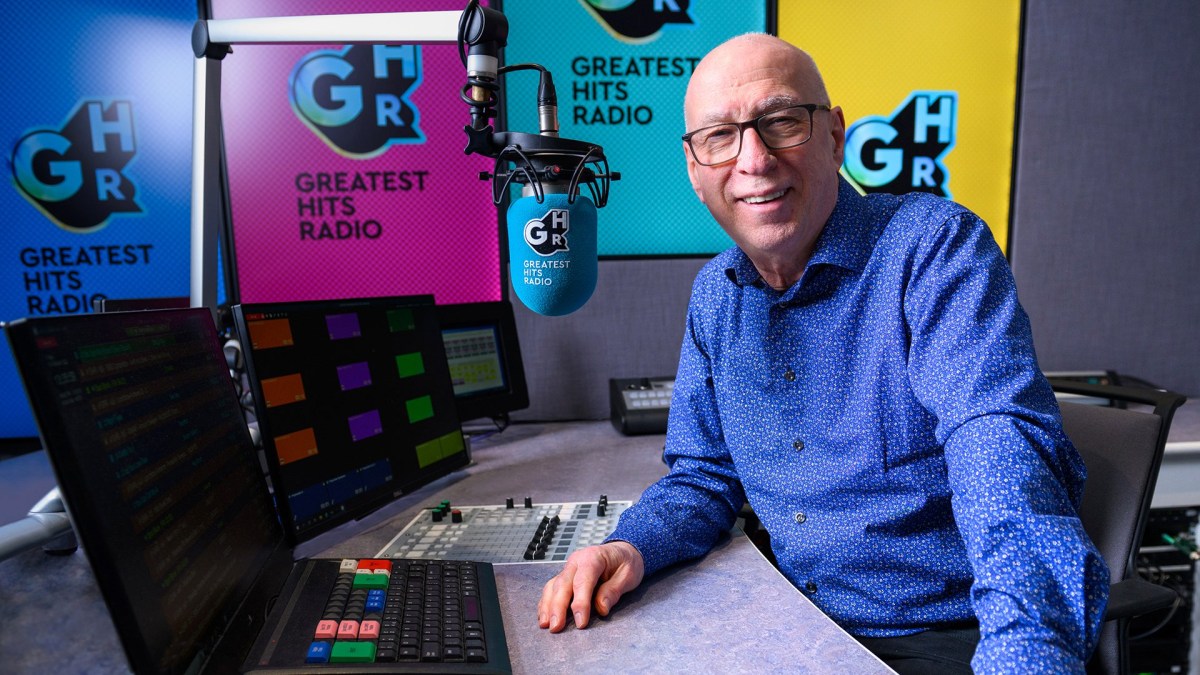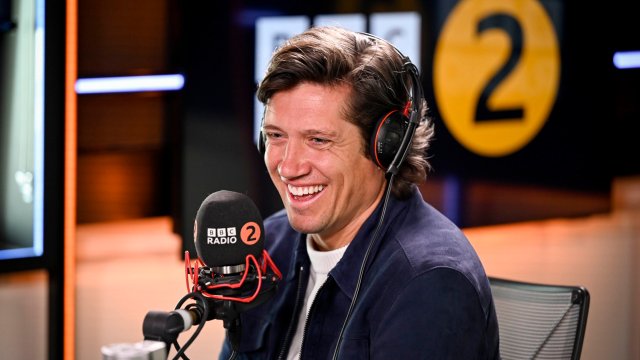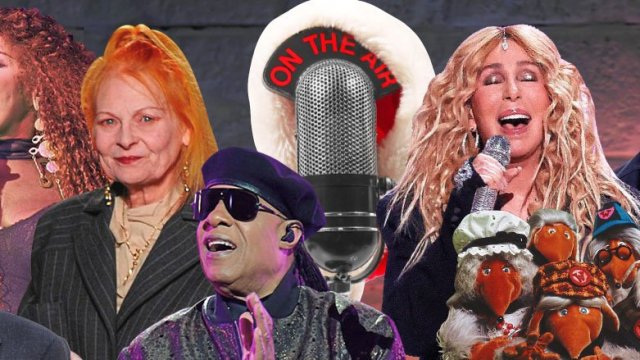Within the crowded landscape of radio, the breakout star of 2023 has surely been the most unlikely one: veteran broadcaster Ken Bruce. The 72-year-old has this year found himself in the curious position of receiving obituary-level plaudits while still at the top of his game. Since he quit the BBC back in March in favour of a slot on Greatest Hits Radio, this most unassuming DJ has become above-the-title famous, and attained national treasure status. There is no bigger name on the airwaves.
His ascension is richly deserved, of course, but it also reminds us that in this age of streaming and podcasts, and where by consequence one might imagine the individual DJ’s cultural significance to have become greatly diminished, radio remains enormously influential. We’re a nation very much in love with the airwaves: 88 per cent of the country listens to some form of radio each week, with 94 per cent tuning in every month.
This means it’s the soundtrack of our lives even more than Taylor Swift is, and it duly provides the backdrop to pretty much everything we do. It’s there during family breakfast time and the daily commute, and then again last thing at night. It blares from factory floors, and is set to more appropriate volume within certain office environments. We listen in the car, and on dog walks, and so those stations we favour – along with the DJs on them – become an intrinsic part of our everyday lives, more familiar to us than certain aunts and uncles.
“When you’ve been on the same slot for over 20 years, like Ken Bruce has,” says Matt Deegan, a radio consultant, “then the familiarity factor really is through the roof. Our favourite television personalities get nowhere near that sort of exposure.”
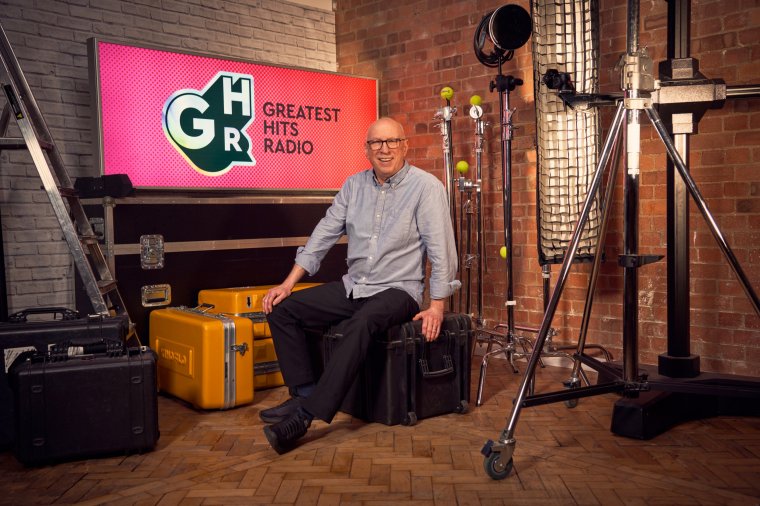
And so when he suddenly announced he was leaving the mid-morning Radio 2 show he’d presented since the early 1990s for the commercial station Greatest Hits Radio, it was big news. Bruce was now able to weigh his column inches in the same way Coleen Rooney had after her High Court ordeal, such was the speculation as to why he left, and what it meant for the corporation he’d departed, which seemed to be developing a habit of losing its best and its brightest: Emily Maitlis, Jon Sopel, Dan Walker, Jane Garvey, Fi Glover, Andrew Marr…
If the presenter himself was surprised at the furore, or considered it entirely acceptable for someone of his clout, we never found out. He said nothing, kept his counsel. He gave no rip-roaring exclusive to the tabloids about his dissatisfaction with his former employers, and merely told the Radio Times that it was “time to challenge myself rather than wait for the axe”. He hasn’t gloated since, either.
“Ken is in many ways the antithesis of what people assume a successful radio DJ to be,” says Deegan. “He’s always been really solid, but never like a Chris Evans personality.” This, Deegan explains, is key to a lengthy radio career. “It’s boring, it’s nice, it has a lot of consistency.”
Few have been consistent in the way Ken Bruce has. He’d been a part of the furniture at Radio 2 for so long that he was easy to overlook, to take for granted, and it seems that the BBC were guilty of it, too – although they were paying him handsomely (somewhere in the region of £400,000 per year, a figure believed to have been matched by his new employers). It would have made better PR for them had he left to retire – he had, after all, reached a certain age – but, no, there was still gas left in his tank. At GHR, where he occupies the same mid-morning slot and plays much the same songs, albeit with less Dua Lipa – GHR’s remit is the classic tracks from the 70s, 80s and 90s – he broadcasts with the same wry humour, and same gentle enthusiasm. He even brought with him PopMaster, the much-loved daily quiz show he presided over on Radio 2 since 1998 and whose copyright, it was revealed, he himself owned.

“PopMaster has changed the shape of commercial radio listening patterns,” says Gary Stein, the station’s Group Programme Director. “Previously, the peak was always at breakfast, but now it’s at 10.30am, when everyone tunes in to listen to PopMaster. It’s up 165 per cent on a year ago, and that’s because it’s such a famous, and such a loved, feature.”
Bruce’s show now commands a daily audience of 3.7 million, and many who have retuned specially for him have stayed. Bauer, which owns GHR, reports that another erstwhile Radio 2 presenter, Simon Mayo, who hosts the drivetime show on the station, has seen a 71 per cent boost in his own ratings year-on-year.
“I think Ken is smiling to himself,” says Deegan. “He was underestimated at the BBC, but he’s ended up doing all right. He must be very pleased.”
In his wake, Bruce left a vacuum that required from the BBC a scramble to both successfully fill it, and to steady a titling ship. It was widely criticised for the lapse in concentration that resulted in the finest broadcaster slipping away, because on Radio 2 Bruce had helmed not only the most listened-to show in the country – around 8 million a day – but also across Europe.
If, previously, they’d always felt pretty comfortable in their position as the nation’s favourite broadcaster, then they can no longer afford such complacency. We’ve had commercial radio for 50 years now, and competition is ramping up. Bauer, for one, which owns GHR alongside Absolute, Jazz FM and Scala, amongst others,has been extending its reach nationwide these past few years, and stealthily poaching talent like Jackie Brambles, Paul Gambaccini and Mark Goodier. The acquisition of Bruce, then, is, as fellow DJ Simon Mayo put it earlier this year, “like signing Lionel Messi”.
“The BBC are fools to have lost him,” says the legendary radio critic Gillian Reynolds. “They probably thought, ‘Oh, it’s only middle-aged to elderly listeners, who needs them?’ But how wrong can you get? That audience segment grew up with radio, they understand its abiding connection, and, statistically speaking, are massive in any national headcount.
“What distinguishes Ken Bruce from newer generations of presenters,” Reynolds continues, “is that, clearly, he was an avid listener himself. He understands the curiously intimate connection between a voice on the air and someone who likes what they hear.” The fact that the BBC seemingly didn’t, Reynolds believes, is indicative that “they are too stupid to see it.”
Radio 2 quickly promoted Vernon Kay, a youthful 49, into Bruce’s chair, which he has worked hard to make his own these past few months. If he has lost some of the more devoted of Bruce’s listeners – the exact amount will be published early next year, but it’s believed to be between two and three million – many have stayed because, in radio, remember, familiarity is key; the BBC remains a trusted brand.
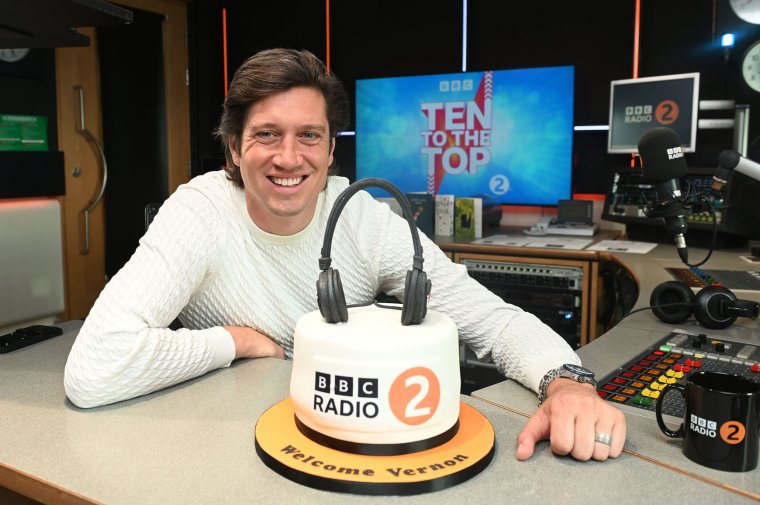
“I do think that Radio 2 has suffered a bit of a drop due to the Ken effect,” says Deegan, “and I’m sure they’d rather have kept him, but it’s not a devastating thing for them at all. Their remit has always been to evolve, and to gradually update. Ken leaving has simply made them accelerate something they’d have done within a few years anyway.”
Alongside Kay are several other recent appointments to represent the station’s new breed. In 2022, Scott Mills replaced another veteran, Steve Wright, on his long-running afternoon slot (Wright remains at the station, clinging on and cracking the same old Steve Wright jokes on various other shows), while former breakfast TV weatherman Owain Wyn Evans does early mornings, and Rylan Clark is a much-loved fixture on Saturday afternoons.
Claudia Winkleman has just announced that she is to step down from her Saturday morning show early next year – she’d taken over from Graham Norton three years previously after Norton left for Virgin – but the swift announcement that Romesh Ranganathan is to replace her should allay the fears of most.
Nevertheless, the broadcasting landscape has changed, is still changing, and the BBC are playing catch up.
“I think that presenters like Sara Cox and Zoe Ball would be a very good scoop for Greatest Hits Radio,” says Deegan, “so I imagine the BBC are probably thinking about their talent a bit more now, and looking after them more carefully.”
For Ken Bruce, it all remains pretty much business as usual – with one exception. Earlier this year, Channel 4 invited him to turn PopMaster into a TV quiz. The series was a hit, and a second now looms. If this means that the man with the face for radio will have to invest in more silk shirts, then that, frankly, is the price of success.
Meantime, the real winners in all this DJ drama are us, the listeners, with so much choice, and so much quality. The world may well have evolved, but radio, which somehow manages to stay ostensibly the same, continues to draw us in and keep us close. We’ve always tuned in. Seems like we always will.
